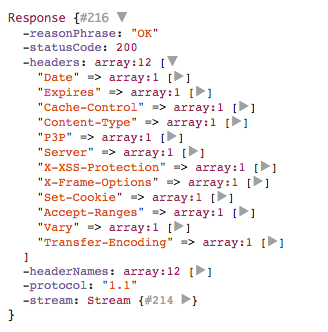Using Guzzle to Retrieve URL Header Data in Laravel 5.3
By Tyler Jefford
November 28th, 2016
I have recently been working on an application in Laravel that was using a basic cURL request to grab some information about a url and display that to the users. While this approach worked, I wanted to make it cleaner and more maintainable, so to do this I installed Guzzle. This is a super easy composer command, but if you are still having trouble, there is an awesome tutorial here on medium.
Once I had Guzzle up and running making my first call was super simple. But I just wasn't getting the deep data that I was getting from the cURL request like port number, transfer time and redirects.

Response from below code
After digging through the documentation and many different stackoverflow discussions I came across using on_stats in my request. This allows me to dump all the header data that I wanted. But it can’t just be called through the request like you can with statusCode. So I had to come up with a clever way to retain the data so I can use it later.
Since this is a standard Laravel Model, it is a traditional OOP class. So I created a protected array at the class level that I will push into from a custom method that will take input and merge into that array.
Here is the code I used to collect and reuse domain header data from a Guzzle request in Laravel.
